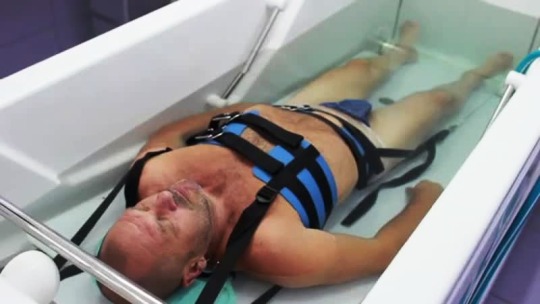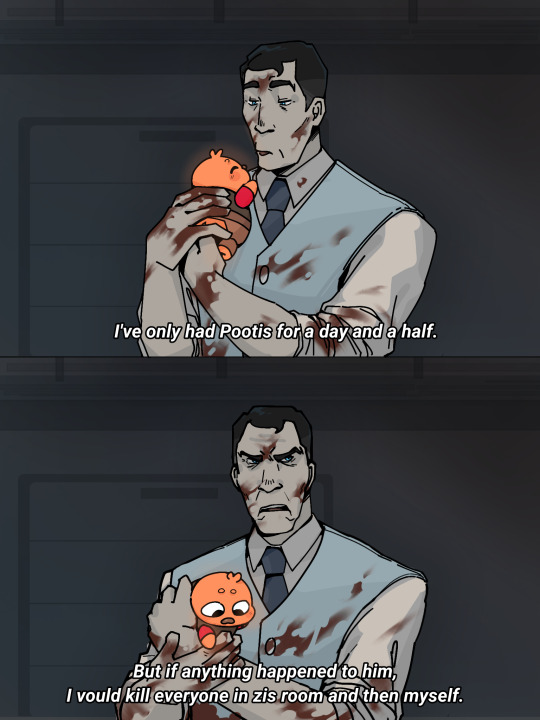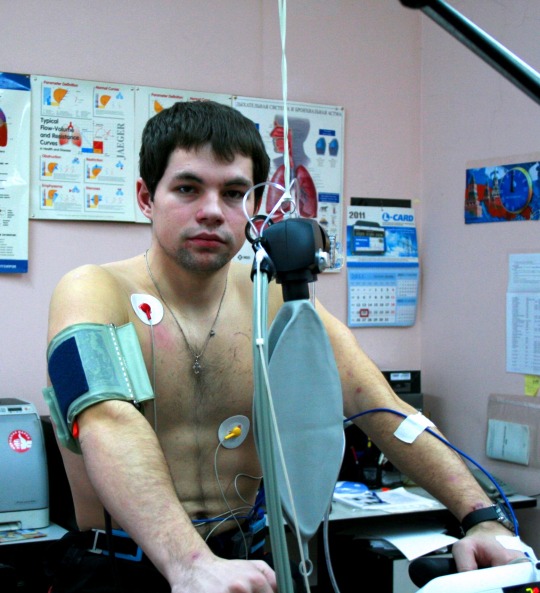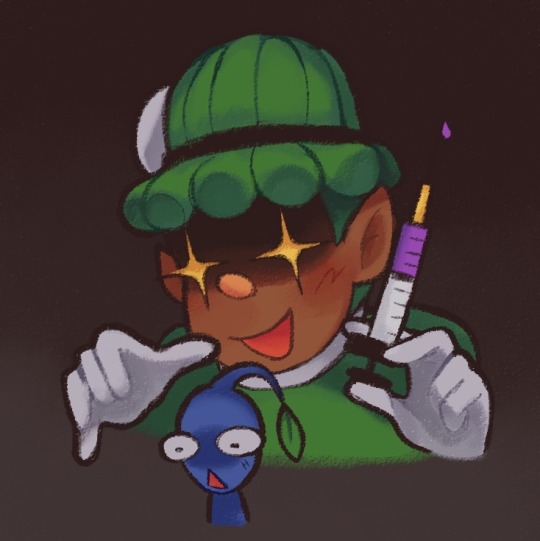#medical experiment
Text

plenty of experiments on the space station
41 notes
·
View notes
Text

The bar was that low.
#Sarah Haider#medical experiment#medical experimentation#medical mutilation#wrong sex hormones#low evidence#poor evidence#religion is a mental illness
22 notes
·
View notes
Text

science experiment. This guy is restrained and will be monitored as the water level rises. A g-string protects his modesty
#underwater challenge#breath holding#breath hold#bath tub breath hold#medical experiment#men under water#menunderwater
6 notes
·
View notes
Text
It's honestly crazy that discussion around testosterone HRT skews so much towards the beginning stages of it (to the point that you have dozens of guys thinking their transition is "failed" if they don't pass by like a year in lol) and what the initial changes of the first couple of months to years look like, like the classic laundry list of those early basic changes like bottom growth, voice drop, etc, when IMO literally none of that compares remotely to the depth and intensity of the long term total masculinization you start to experience like 3-5+ years in.
#also has made it increasingly difficult to relate to those early into their transition honestly#like not in a bitter way it’s just like hard to express how diff the experience is#of being like a year on T vs 5 😭#ETA I muted this post ages ago now but fwiw seeing transphobes pop up in the notes on occasion just to say cruel reactionary shit#you are clowns I cannot imagine seeing a post that is ONLY about discussing with folks about the reality of a medication#and choosing to make that your moment to get a schoolyard bully jab in about how you find it gross or something.#you are less well adjusted than most children. may the universe be kinder to you than you are to others.
38K notes
·
View notes
Text
Fat people deserve mobility aids, too. No matter if it's connected to their fatness or not, because having a mobility issue that is connected to one's fatness won't change that they're still fat and still have the issue at hand. Fat people don't deserve to "tough it out" because fatness should be this divine punishment doled out to those who "deserve" it. Fat disabled people deserve to have the peace of mind that they can exist in whatever way is most comfortable and accessible to them
#disability#ableism#ableism tw#fatphobia#fatphobia tw#also if it's an issue solved by weight loss why would you want them to suffer until the weight loss helps wouldn't that DISCOURAGE them?#because if i were suffering the entire time i sure as fuck wouldn't want to keep going for the ~idea~ of it's gonna pay off!!!#also even if they 'made themself disabled' by being fat or anything else that doesn't matter. they're still disabled.#there is no 'good' disabled and 'bad' disabled and you cannot sort people into those categories#for every 'bad' fat disabled person there are multiple 'good' fat disabled people but you can't tell them apart often actually!#because you would have to know the intimate details of their medical history and familial lineage and tbh if you're...#...being a piece of shit to a disabled person because you assume they're guilty until proven innocent i don't blame others for being...#...weary of you and not wanting to be around you. because you've already proven you can't handle the IDEA of complex disabled experience
21K notes
·
View notes
Text

I wonder how their interaction would go
#tf2#emesis blue#lil pootis#tf2 medic#emotional support pet#pootis is made for medimedes in any form any kind and any universe#medic will assist heavy even if he was an marketable industrial experiment bird
6K notes
·
View notes
Text
you have to go to work so you can pay for your doctor, who is not taking your insurance right now, and if you say i can't afford the doctor's you are told - get a better job. it is very sad that you are unwell, yes, but maybe you should have thought about that before not having a better job.
(where is the better job? who is giving out these better jobs? you are sick, you are hurting - how the hell are you supposed to be well enough for this better job?)
but you go to the doctor because you had the nerve to be hurt or sick or whatever else. and they tell you that it is because you have anxiety. you try your best. you are a self-advocate. you've done the reading (which sometimes pisses them off worse, honestly). you say it is actually adding to my anxiety, it is effecting my quality of life. so they say that you are fat. they say that all young people have this happen to them, isn't it a medical marvel! they say that you should eat more vegetables. they say that you probably just need to lose a little more weight, and that you are faking it for attention.
(what attention could this doctor possibly give? what validation? that's their fucking job, isn't it?)
there is always a hypochondriac, right. someone always tells you about a hypochondriac. or someone who is unnecessarily aggressive during the worst days of their life. or someone looking "for a quick fix". or some idiot who wasn't educated about how to properly care for themselves who just abandons their treatment. and again, the hypochondriac, the overly-cautious hysteric. these people don't deserve to be treated like humans (right), and since you might be one of these people, you also don't get treated like a human. because those people can really fuck with the system, you now have to pay for it. and besides. you're actually probably faking it.
(more often than not, you find a 2:1 ratio of these stories. for every "hypochondriac", there are 2 people who knew something was wrong, and yet nobody could fucking find it. the story often ends with pointless suffering. the story often ends with and now it's too late, and it's going to kill me.)
you are actually just making excuses. someone else got that procedure or that diagnosis and he's fine, you should be fine too. someone else said they watched a documentary about other inspirational people with your exact same condition, maybe you should be inspirational, too. you're just too morbid. your pain and your experience is probably just not statistically concerning. it is all self-reported anyway, and you're just being a baby.
(once, while sitting down in the middle of making coffee, you had the sudden, horrible thought - i could kill myself to make the pain stop. you had to call your best friend after that. had to pet your dog. had to cry about it in the shower. you won't, but that moment - god, fuck. the pain just goes on and on.)
you know someone who went in for routine surgery and said i still feel everything. they told her to just relax. it took her kicking and screaming before they figured out she wasn't lying - the anesthetic drip hadn't been working. you know someone who went in for severe migraines who was told drink water and lose weight. you know someone who was actively bleeding out and throwing up in the ER and was told you're just having a bad period.
in the ER there are always these little posters saying things like "don't wait! get checked today!" and you think about how often you do wait. how often the days spool out. you once waited a full week before seeing the doctor for what you thought was a sprained wrist. it had actually been broken - they had to rebreak it to set it.
but you go into the doctor. the problem you're having is immediate. the person behind the counter frowns and says we're not taking your insurance. you will be paying for this out-of-pocket.
they send you home with tylenol and a little health packet about weight loss or anxiety or attention deficit. on the front it has your birthday and diagnosis. you think about crying, and the words swim. it might as well say go fuck yourself. it might as well say you're a fucking idiot. it might as well say light your money on fire and lie down in it. and the entire fucking time - the problem persists.
it's okay. it's okay, it's just another thing, you think. it's just another thing i have to learn to live with.
#spilled ink#warm up#can you tell what i'm mad about today specifically#i will say that there are a LOT of things that go into this. like a lot. this is ungendered and unspecific for a reason#it isn't just sexism. it's also racism. and ableism. and honestly classism.#and before a healthcare professional reads this as a personal attack: i understand ur burnt out#we are ALSO burnt out. your situation is also dire. this is not an attack on you.#this is a commentary on the incredible amounts of bigotry that lie at the heart of capitalism#where people have to pay money out of pocket to be told to fuck off.#your job is important. so is our humanity. and if you cannot accept that people are fucking mad as hell#at the industry - you are probably not listening .#anyway at some point im gonna write a piece about sexism specifically in medical shit#but i don't want terfs clowning in it bc they can't understand nuance#> it is true that ppl w/a uterus are more likely to experience medical malpractice & dismissal globally#> it is also true that trans people experience an equally fucked up and bad time in the medical field#> great news! the medical industrial complex is an equal opportunity life ruiner :)#(if you find it necessary to go into a debate about biology while discussing medical malpractice#i want to warn you that you're misunderstanding the issue. because guess what.#cis MEN might experience this. particularly black men. particularly disabled men.#so YES having a uterus can lead to more trouble for you. but this happens a LOT.#instead of fighting those ALSO experiencing your pain.... try working WITH them.#which btw. is like. actual feminism.)
2K notes
·
View notes
Text
It is okay to need pain medication to function with your chronic pain. It is okay. I promise. I know everywhere you turn pain medication is demonized. I know that it is scary to talk about. It is okay to be grateful that you have access to pain medication. Pain meds have greatly improved my quality of life and I wouldn't be able to live my life outside of my bed without them. And that's okay!!!
#of course i wish i didn't have to take meds to function#but I'm so grateful they exist and I have access to them!#I am able to live much fuller life#they are one of my pain management tools and they have made my life better#chronic pain#of course this is not everyone else's experience#and that is okay too#there is space for both sides of the conversation#I just feel like this side is very often left out#pain medication#meds tw
2K notes
·
View notes
Text


'You need to tell him.'
'We can't tell anyone.'
#tf2#tf2 fanart#team fortress 2#tf2 medic#tf2 heavy#tf2 spy#tf2 sniper#heavymedic#i should really stop freehanding perspective#still experimenting with limited values and chroma#dont look at the heavymedic one too hard it might be the first kiss ive ever drawn lol
3K notes
·
View notes
Text

about to use that spirometer
18 notes
·
View notes
Text
Published: Apr 5, 2023
Prisha Mosley was 17 when she was first given testosterone in a clinic in North Carolina, after she had declared to her parents that she was a boy. She had struggled through her teen years with anorexia and depression after a sexual assault. Luka Hein had both breasts removed as a 16-year-old in Nebraska. Chloe Cole, in California, was a year younger when she had her double mastectomy. She had been on testosterone and puberty-blocking drugs since 13, also after a sexual assault.
All three girls were experiencing “gender dysphoria”, a feeling of intense discomfort with their own sexed bodies. Once a rare diagnosis, it has exploded over the past decade. In England and Wales the number of teenagers seeking treatment at the Gender Identity Development Service (gids), the main clinic treating dysphoria, has risen 17-fold since 2011-12 (see chart 1). An analysis by Reuters, a news agency, based on data from Komodo, a health-technology firm, estimated that more than 42,000 American children and teenagers were diagnosed in 2021—three times the count in 2017. Other rich countries, from Australia to Sweden, have also experienced rapid increases.

As the caseload has grown, so has a method of treatment, pioneered in the Netherlands, now known as “gender-affirming care”. It involves acknowledging patients’ feelings about a mismatch between their body and their sense of self and, after a psychological assessment, offering some of them a combination of puberty-blocking drugs, opposite-sex hormones and sometimes surgery to try to ease their discomfort. Komodo’s data suggest around 5,000 teenagers were prescribed puberty-blockers or cross-sex hormones in America in 2021, double the number in 2017.
Dysphoria furoria
The treatment is controversial. In many countries, but in America most of all, it has become yet another front in the culture wars. Many on the left caricature critics of gender-affirming care as callously disregarding extreme distress and even suicides among adolescents with gender dysphoria in their determination to “erase” trans people. Zealots on the right, meanwhile, accuse doctors of being so hell-bent on promoting gender transitions that they “groom” vulnerable teenagers—a term usually applied to paedophiles. In October supporters and critics of gender-affirming care held rival, rowdy protests outside a meeting of the American Academy of Paediatrics. Several American states, such as Florida and Utah, have passed laws banning gender-affirming care in children. Joe Biden, America’s president, has described such laws as “close to sinful”.
Almost all America’s medical authorities support gender-affirming care. But those in Britain, Finland, France, Norway and Sweden, while supporting talking therapy as a first step, have misgivings about the pharmacological and surgical elements of the treatment. A Finnish review, published in 2020, concluded that gender reassignment in children is “experimental” and that treatment should seldom proceed beyond talking therapy. Swedish authorities found that the risks of physical interventions “currently outweigh the possible benefits” and should only be offered in “exceptional cases”. In Britain a review led by Hilary Cass, a paediatrician, found that gender-affirming care had developed without “some of the normal quality controls that are typically applied when new or innovative treatments are introduced”. In 2022 France’s National Academy of Medicine advised doctors to proceed with drugs and surgery only with “great medical caution” and “the greatest reserve”.
There is no question that many children and parents are desperate to get help with gender dysphoria. Some consider the physical elements of gender-affirming care to have been life-saving treatments. But the fact that some patients are harmed is not in doubt either. Ms Mosley, Ms Hein and Ms Cole are all “detransitioners”: they have changed their minds and no longer wish to be seen as male. All three bitterly regret the irreversible effects of their treatment and are angry at doctors who, they say, rushed them into it. Ms Cole considers herself to have been “butchered by institutions we all thought we could trust”.
The transitioning of teenagers has its roots in a treatment protocol developed in the Netherlands in the 1980s and 1990s. It is built on three pillars: puberty-blockers (formally known as gnrh antagonists), cross-sex hormones and surgery. The goal was to alter the patient’s body to more closely match their sense of cross-sex identity, and thereby relieve their mental anguish. A pair of papers published in 2011 and 2014 by Annelou de Vries, one of the Dutch protocol’s pioneers, reported on the experiences of some of the first patients. They concluded that symptoms of depression decreased among patients taking puberty-blockers, and that gender dysphoria “resolved” and psychological functioning “steadily improved” after cross-sex hormones and surgery.
Transition ignition
Puberty-blockers do what their name suggests. The idea is that suspending unwanted sexual development can give patients time to think about their dysphoria, and whether or not they wish to pursue more drastic interventions. The same family of drugs is used to treat “central precocious puberty”, in which puberty begins very early. Some countries also use them to chemically castrate sex offenders. As with many other medicines used in children, the use of puberty-blockers in gender medicine is “off-label”, meaning that they do not have regulatory approval for that purpose.
Patients who decide to proceed with their transition are then prescribed cross-sex hormones. Males will see the development of breasts and alterations to how fat is stored on the body. Giving testosterone to females boosts muscle growth and causes irreversible changes such as deepening the voice, altering the bone structure of the face and the growth of facial hair.
Under the original Dutch protocol, surgery was permitted only after a patient turned 18, although as the cases of Ms Cole and Ms Hein show, in some places mastectomies occur at a younger age. Male patients can have artificial breasts implanted. More elaborate procedures, in which females have a simulated penis built from a tube of skin harvested from the forearm or the thigh, or males have an artificial vagina made in a “penile inversion”, are performed extremely rarely on minors.
In 2020 the National Institute for Health and Care Excellence (nice), a British body which reviews the scientific underpinnings of medical treatments, looked at the case for puberty-blockers and cross-sex hormones. The academic evidence it found was weak, discouraging and in some cases contradictory. The studies suggest puberty-blockers had little impact on patients. Cross-sex hormones may improve mental health, but the certainty of that finding was low, and nice warned of the unknown risks of lasting side-effects.
For both classes of drug, nice assessed the quality of the papers it analysed as “very low”, its poorest rating. Some studies reported results but made no effort to analyse them for statistical significance. Cross-sex hormones are a lifelong treatment, yet follow-up was short, ranging from one to six years. Most studies followed only a single set of patients, who were given the drugs, instead of comparing them with another set who were not. Without such a “control group”, researchers cannot tell whether anything that happened to the patients in the studies was down to the drugs, to other treatments the patients might be receiving (such as counselling or antidepressants), or to some other, unrelated third factor.
The upshot is that it is hard to know whether any of the supposed effects reported in the studies, whether positive or negative, are actually real. Reviews in Finland and Sweden came to similar conclusions. As the Swedish one put it, “The scientific base is not sufficient to assess…puberty-inhibiting or gender-opposite hormone treatment” in children.
Two American professional bodies, the Endocrine Society (es) and the World Professional Association for Transgender Health (wpath) have also reviewed the science underpinning adolescent transitions. But es’s review did not set out to look at whether gender-affirming care helped resolve gender dysphoria or improve mental health by any measure. It focused instead on side-effects, for which it found only weak evidence. This omission, says Gordon Guyatt of McMaster University, makes the review “fundamentally flawed”. wpath, for its part, did look at the psychological effects of blockers and hormones. It found scant, low-quality evidence. Despite these findings, both groups continue to recommend physical treatments for gender dysphoria, and insist that their reviews and the resulting guidelines are sound.
One justification for puberty-blockers is that they “buy time” for children to decide whether to proceed with cross-sex hormones or not. But the data available so far from clinics suggest that almost all decide to go ahead. A Dutch paper published in October concluded that 98% of adolescents prescribed blockers decide to proceed to cross-sex hormones. Similarly high numbers have been reported elsewhere.
The reassuring interpretation is that blockers are being prescribed very precisely, given only to those whose dysphoria is deep-rooted and unlikely to ease. The troubling one is that puberty-blockers lock at least some children in to further treatment. “Time to Think”, a new book about gids by a British journalist, Hannah Barnes, cites British medical workers concerned by the latter possibility. They say patients received blockers after cursory and shallow examinations.
The Dutch researchers weigh both explanations. “It is likely that most people starting [puberty-blockers] experience sustained gender dysphoria,” they write. But, “One cannot exclude the possibility that starting [puberty-blockers] in itself makes adolescents more likely to continue medical transition.”
Perhaps the biggest question is how many of those given drugs and surgery eventually change their minds and “detransition”, having reconciled themselves with their biological sex. Those who do often face fresh anguish as they come to terms with permanent and visible alterations to their bodies.
Once again, good data are scarce. One problem is that those who abandon a transition are likely to stop talking to their doctors, and so disappear from the figures. The estimates that do exist vary by an order of magnitude or more. Some studies have reported detransition rates as low as 1%. But three papers published in 2021 and 2022, which looked at patients in Britain and in America’s armed forces, found that between 7% and 30% of them stopped treatment within a few years.
The original Dutch studies published in 2011 and 2014 were longitudinal—that is, they followed the same group of patients throughout their treatment. Yet three recent critiques published in the Journal of Sex & Marital Therapy nonetheless find fault with the studies’ data.
One of the new studies’ concerns is the small size of the original samples. The 2011 paper looked at 70 patients. But the outcome of treatment was only known for between 32 and 55 of them (the exact number depends on the specific measure). And even then, the final assessment of outcomes occurred around 18 months after surgery—a very short timeframe for a treatment whose effects will last a lifetime. (The first patient, “FG”, was followed for longer. In 2011, when in his mid-30s, researchers reported his feelings of “shame about his genital appearance” and of “inadequacy in sexual matters”. A decade later though, things had improved, and FG had a steady girlfriend.)
The critiques also suggest that the finding that gender dysphoria improved with treatment may have been an artefact of how the participants were assessed. Before treatment, female patients were asked to agree or disagree with such statements as, “Every time someone treats me like a girl I feel hurt.” This established their desire to be seen as male. After blockers, hormones and surgery the same individuals were asked questions on a scale originally developed for those born male. It offered statements such as, “Every time someone treats me like a boy I feel hurt.” Naturally, patients who preferred to be seen as male disagreed. In effect, the yardstick was changed in a way that might be seen as making positive outcomes more likely.
Finally, the original studies seem to have inadvertently cherry-picked patients for whom the treatment was most effective. The researchers started with 111 adolescents, but excluded those whose treatment with puberty-blockers did not progress well. Of the remaining 70, others were omitted from the final findings because they did not return questionnaires, or explicitly refused to do so, or dropped out of care or, in one case, died of complications from genital surgery. The data may therefore exclude precisely those patients who were harmed by or dissatisfied with their treatment.
In a rebuttal published in the same journal, Dr de Vries insists that the original papers found a significant improvement in gender dysphoria, the condition the protocol was designed to treat. She concedes that the switching of assessment scales is “not ideal” but says this does not imply the studies’ results were “’falsely’ measured”. In response to worries about the relatively short follow-up, she noted that a study reporting longer-term outcomes is due “in the upcoming years”.
What is more, whatever the merits of the Dutch team’s original research, the patients passing through modern clinics are strikingly different from those assessed in their papers. Twenty years ago the majority of patients were pre-pubescent boys; in recent years teenage girls have come to dominate (see chart 2). The findings of older research may not apply to today’s patients.

The Dutch team’s approach was deliberately conservative. Patients had to have suffered from gender dysphoria since before puberty. Many of today’s patients say they began to suffer from dysphoria as teenagers. The Dutch protocol excludes those with mental-health problems from receiving treatment. But 70% or more of the young people seeking treatment suffer from mental-health problems, according to three recent papers looking at patients in America, Australia and Finland.
Despite the protocol’s caution, says Will Malone of the Society for Evidence-Based Gender Medicine, an international group of concerned clinicians, the reality is often the reverse, especially in America, with mental-health issues becoming a reason to proceed with transitions, rather than to stop them. “We are now told that if we don’t address young people’s mental-health problems caused by dysphoria with transition, they will kill themselves.”
Gender agenda
The original Dutch protocol emphasises the need for careful screening and assessments, as do official guidelines in most countries. But whatever the guidance, there are persistent allegations that it is not being followed in practice. “I had one 15-minute appointment before I was given testosterone,” says Ms Mosley. Many American patients contacted by The Economist reported similarly brief examinations.
The possibility that many teenagers presenting as trans could instead be gay has long been discussed. The Dutch study of 2011 found that 97% of the participants were attracted either to their own sex or to both sexes. In 2019 a group of doctors who resigned from gids told the Times, a British newspaper, of their worries about homophobia in some patients and parents. They worried that, by turning children into simulacra of the opposite sex, the clinic was, in effect, providing a new type of “conversion therapy” for gay children.
Both within America and without, whatever the loudmouths may claim, the vast majority of practitioners are simply trying to ease the genuine suffering of adolescents afflicted by gender dysphoria. But in America in particular the charged atmosphere has made it very difficult to separate the science from the politics.
European medical systems have not concluded that it is always wrong for an adolescent to transition. They are not trying to erase distressed patients. They have simply determined that more research and data are needed before physical treatments for gender dysphoria can become routine. Further research could, conceivably, lead to guidelines similar to those already in use by American medical bodies. But that is another way of saying that it is impossible to justify the current recommendations about gender-affirming care based on the existing data.
[ Via: https://archive.is/oeQ6F ]
#queer theory#weak evidence#gender ideology#medical transition#puberty blockers#cross sex hormones#wrong sex hormones#ideological capture#affirm or suicide#affirmation model#gender affirming#gender affirmation#affirmation#Dutch protocol#gay conversion therapy#conversion therapy#medical experimentation#medical experiment#religion is a mental illness
15 notes
·
View notes
Text



Yonny is so silly, go commit your funky lil experiments
#kit draws#pikmin#pikmin 4#pikmin yonny#pikmin Collin#such a funny character#he cares for newbie but also proceeds to send them into the dangerous night not surprised if they return safely#also does unlawful experiments with his medical degree good lord
2K notes
·
View notes
Text
Whumpee’s tied down in a hospital gown gagged and blindfolded.
The gag is so they don’t bite.
The blindfold is so no one has to look into their eyes when they run unethical experiments.
Besides, they’re here for the science, not torture. They had the stomach for blood but not for the crying.
#whump#whumpee#whump prompt#medical whump#science whump#medical prompt#gagged and blindfolded#sensory deprivation whump#blindfolded whumpee#gagged whumpee#defiant whumpee#experiment whump#living weapon whump
2K notes
·
View notes
Text
Social transition being seen (by some) as this super easy thing that isn't as hard as real transitioning (medical) is bullshit. Be critical of the idea that there are some trans people who just "have it easy" because they are trans or because they are trans in ways you may not be.
Social transition is just as difficult, hard, and rewarding as medical transition. Maybe it is not as hard for some, sure, but that is not the same as thinking that social transition is inherently easier or lesser. If you're socially transitioning, your voice still matters.
#trans#transgender#lgbt#lgbtq#ftm#mtf#nonbinary#not to mention that so many people DO want to medically transition but *can't*#so it can be even harder for some when they feel social transition is their only option when they don't want it to be#but social transition carries its own risks and challenges and again rewards#and i've seen this idea plenty where it's like 'oh you don't GET my struggles because you're SOCIALLY transitioning'#and while yes i am different than some trans people to say i'm struggling *more* if i'm the only one medically transitioning is??? huh????#i don't buy into this idea that social transition is never scary because you don't have the boot of the medical system on your back#(though non-med or pre-med transitioning people still face issues in medical settings so even THEN we aren't seperate)#like there's very few ways you can separate my issues as a medically-transitioning person and the issues of somebody who isn't...#...and by that i mean there's few ways you can separate our issues so that mine trumps theirs or that i'm seen as like... trans but More#does that make sense?#medical transitioning is important but that doesn't mean it is *more* important or that only *it* is important#you can support us who are medically transitioning without erasing the experiences and struggles of other trans people#and plus... so many of us who are medically transitioning NOW are the people who socially transitioned THEN#and dare i say i despised social transition more because of how hard it was? medical transition has been (more or less) easier...#...in that i can just *be* now
2K notes
·
View notes
Text
Unhinged “trust me, I’m a doctor” scientist & their partner whom they perform questionable experiments on is my favorite dynamic
#ship dynamics#relationship goals lol#who do you wanna be/who are you in this dynamic?#I wanna be the test subject :) fix me up doc#uhh y’know what I’m dropping the guys I’m thinking of#if any of y’all reblog do the same cause I need more of this dynamic in my life#Frankenstein & his monster#Frank n Furter & Rocky#Medic & Heavy#this goes for all kinds of relationships btw#besties in STEM#love in the laboratory#complicated feelings from trying to balance adoration and feeling used#all of it#mad scientist#evil scientist#test subject#lab experiment#why do i like mad scientists lmao#200 eek#300 :]#400
530 notes
·
View notes

